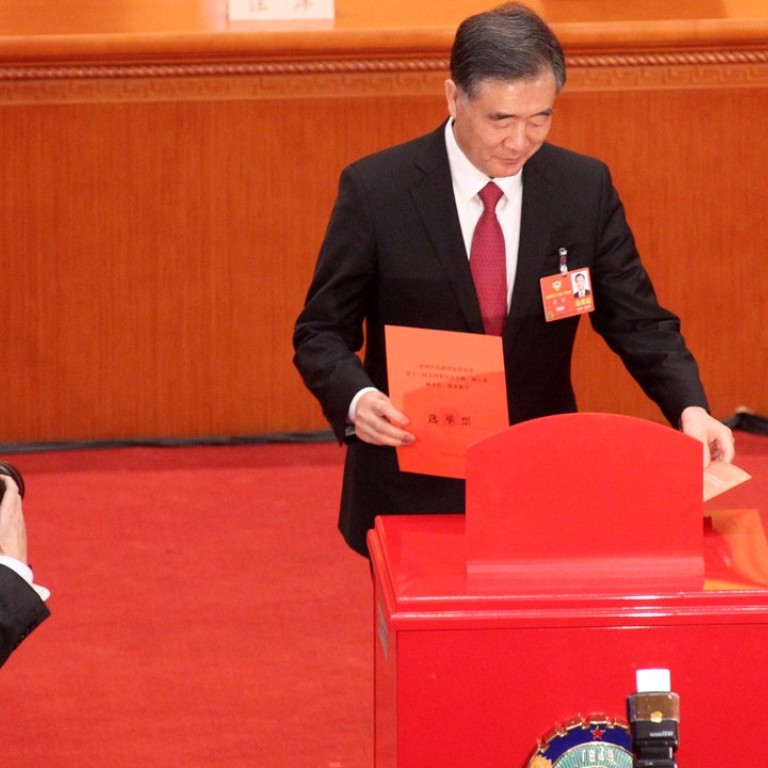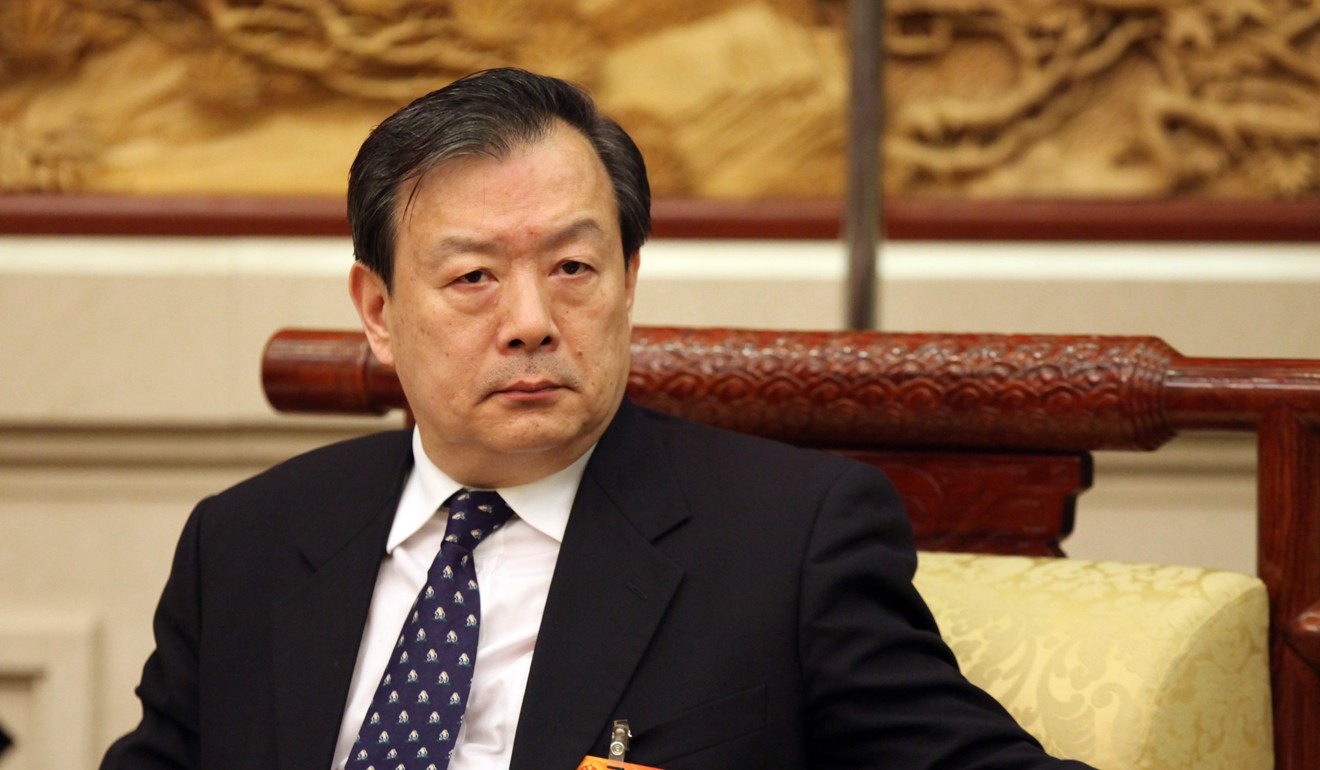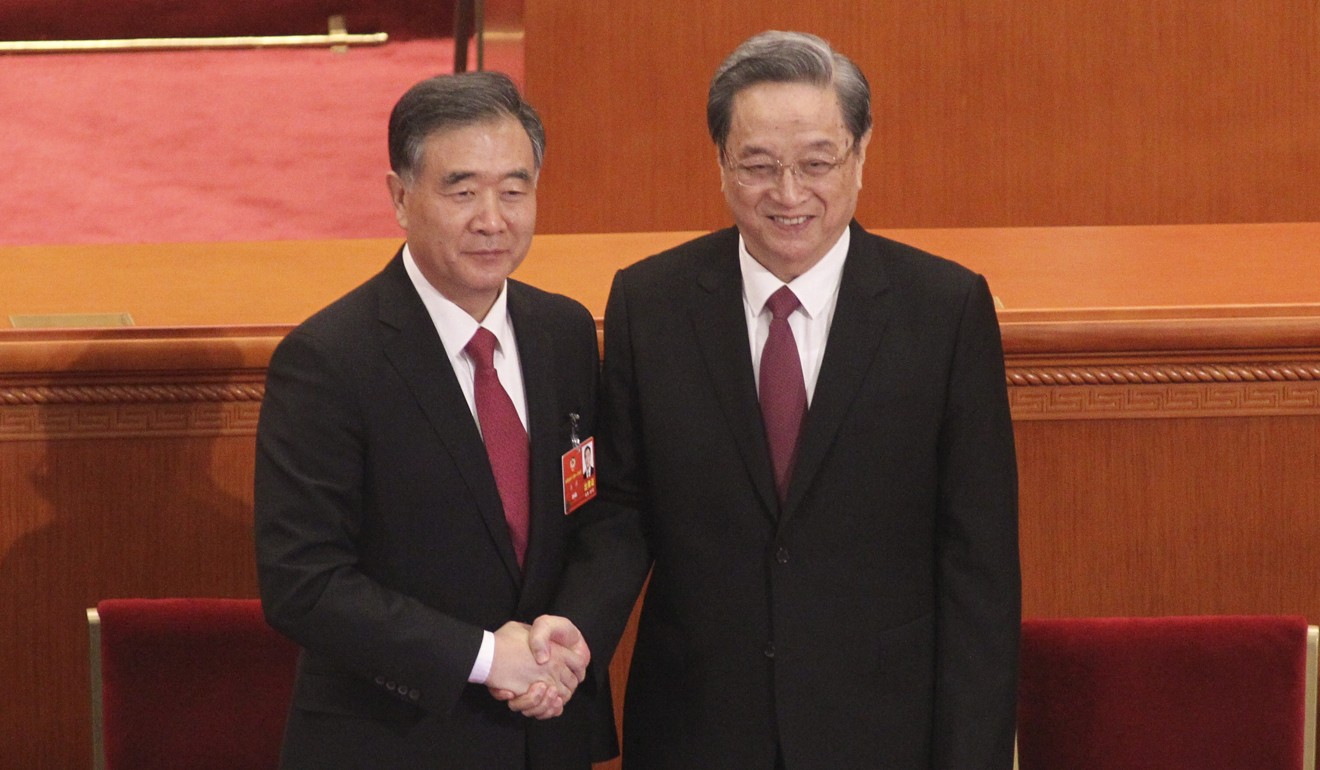
Wang Yang takes the helm of China’s top political advisory body
Vice-premier elected chairman of the CPPCC with unanimous support
Wang Yang, a vice-premier and member of China’s apex of power, was elected chairman of the country’s political advisory body on Wednesday.
He received full votes from the 2,144 delegates to the Chinese People’s Political Consultative Conference at the Great Hall of People in Beijing. They also elected 24 vice-chairs and standing committee members for a new five-year term until 2023.
Wang was Guangdong’s party boss from 2007 to 2012 and is credited with putting the province on track to becoming an economic powerhouse through a series of reforms – including Guangzhou becoming the first mainland city to release its budget.
He was also involved in economic talks between China and the United States and headed a government leading group on poverty alleviation.
He was elevated to the ruling Communist Party’s powerful Politburo Standing Committee in October.
Former party secretary of Zhejiang province Xia Baolong, a vice-chairman of the CPPCC, became its new secretary.

Hong Kong’s former chief executives Tung Chee-hwa and Leung Chun-ying were also re-elected as two of the CPPCC’s 24 vice-chairmen, with 2,134 and 2,140 votes in favour, respectively.
Former World Health Organisation head Dr Margaret Chan Fung Fu-chun and a group of Hong Kong business leaders were among the new faces promoted to the top echelon of the political advisory body.
“I was a standing committee member of the CPPCC for two [five-year] terms, and I’ve been a vice-chairman since last year. I am not unfamiliar with the CPPCC’s work,” Leung told China News Service before the vote.
Leung said he hoped Hong Kong’s innovation and tech industries could make good use of the opportunities from Beijing’s “Greater Bay Area” project, which aims to turn Hong Kong, Macau and nine neighbouring cities in southern China into an integrated economic and business hub.
“I often encourage foreign innovation and tech firms to set up an office in Central [Hong Kong] and put their other departments in the Greater Bay Area ... this can help them to save costs,” he said.

As well as Tung and Leung, 16 other delegates from Hong Kong were elected as standing committee members.
Nine of them are joining the standing committee for the first time. They include Margaret Chan, Tourism Board chairman Peter Lam Kin-ngok, Chinese General Chamber of Commerce chairman Jonathan Choi Koon-shum, Federation of Trade Unions president Lam Shuk-yee, and Tan Tieniu, a deputy director of Beijing’s liaison office in Hong Kong.
Among the seven re-elected was Hong Kong’s former chief secretary Henry Tang Ying-yen,
billionaires Victor Li Tzar-kuoi and Peter Lee Ka-kit, and former Hospital Authority chairman Anthony Wu Ting-yuk.
Movie star Jackie Chan and well-known astronaut Yang Liwei were among dozens of candidates who failed to get enough votes to join the standing committee.
But after receiving only two votes in favour, Chan said he did not even know he had been nominated.
“I was totally in the dark,” Chan said, adding that he was not disappointed and was content with being a political adviser on the CPPCC. “I doubt whether I would have enough time to be a standing committee member, even if they had asked me,” he said. “It’s not so bad to leave that to someone else.”
Additional reporting by Choi Chi-yuk


